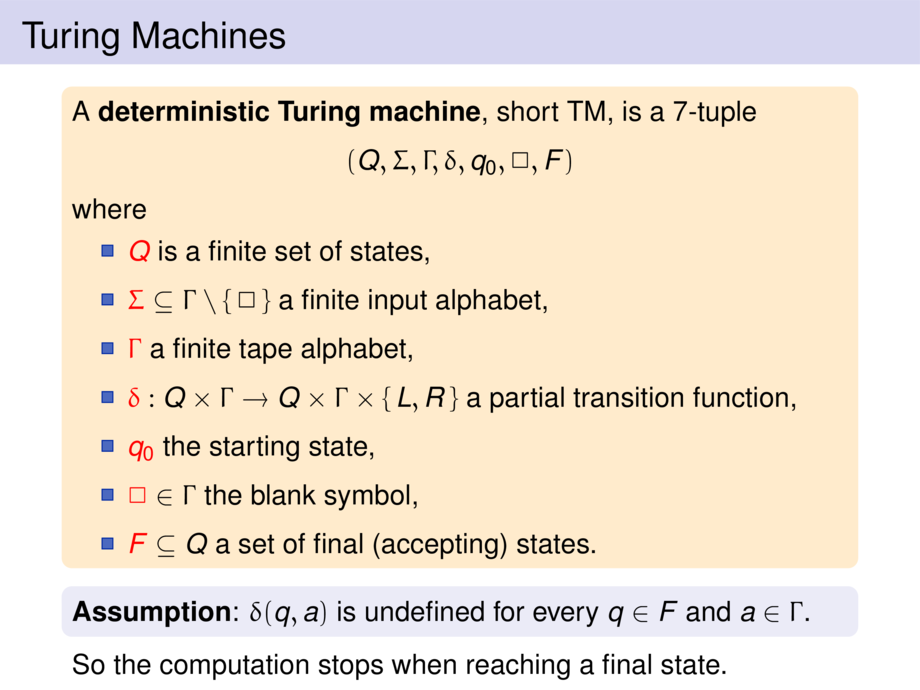



































































































10/85
\begin{frame}{Turing Machines}
\begin{goal}{}
A \emph{deterministic Turing machine}, short TM, is a 7-tuple
\begin{talign}
(Q,\Sigma,\Gamma,\delta,q_0,\Box,F)
\end{talign}
where
\begin{itemize}
\item \alert{$Q$} is a finite set of states,
\item $\alert{\Sigma} \subseteq \Gamma \setminus \{\,\Box\,\}$ a finite input alphabet,
\item \alert{$\Gamma$} a finite tape alphabet,
\item $\alert{\delta} : Q \times \Gamma \to Q \times \Gamma \times \{\,L,R\,\}$ a partial transition function,
\item \alert{$q_0$} the starting state,
\item $\alert{\Box} \in \Gamma$ the blank symbol,
\item $\alert{F} \subseteq Q$ a set of final (accepting) states.
\end{itemize}
\end{goal}
\pause
\begin{block}{}
\emph{Assumption}: $\delta(q,a)$ is undefined for every $q\in F$ and $a\in\Gamma$.
\end{block}
So the computation stops when reaching a final state.
\end{frame}

